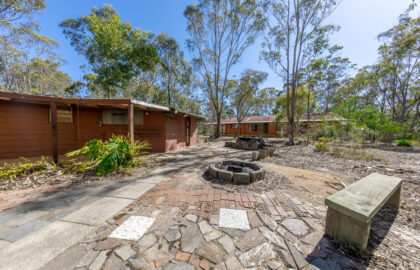
The real estate industry in Australia is dynamic and competitive, making it essential for agents to stay informed about various aspects of the profession. Whether you’re a seasoned professional or just starting your career, understanding the frequently asked questions (FAQs) can provide valuable insights into the challenges and opportunities you may encounter. In this blog post, we’ll address common queries that real estate agents in Australia often face.
1. What qualifications do I need to become a real estate agent in Australia?
To become a licensed real estate agent in Australia, you need to meet specific educational and regulatory requirements, which can vary slightly depending on the state or territory in which you work. Generally, you will need to:
Complete a Certificate IV in Property Services (Real Estate): This qualification is a mandatory requirement for obtaining a real estate agent’s license.
Register with the relevant state or territory authority: Each state has its regulatory body (e.g., NSW Fair Trading, Consumer Affairs Victoria) where you must apply for registration or licensing.
Gain work experience: Most states require agents to complete a certain number of hours of practical experience, usually under the supervision of a licensed agent.
In addition, some agents may choose to pursue further education or specialization through diplomas or advanced courses to stay competitive and knowledgeable.
2. What are the key responsibilities of a real estate agent in Australia?
Real estate agents in Australia are responsible for a wide range of tasks, including:
Property sales: Helping clients buy and sell properties, including conducting property appraisals, listing properties, and managing negotiations.
Property management: Overseeing rental properties, including finding tenants, handling leases, collecting rent, and ensuring maintenance and repairs.
Marketing: Developing and implementing marketing strategies for property listings, including online advertising, print media, and open homes.
Client support: Offering guidance to buyers, sellers, landlords, and tenants throughout the entire process, ensuring compliance with laws and regulations.
Documentation and contracts: Preparing legal documents, including sales contracts, rental agreements, and disclosure statements.
Agents must also stay up-to-date with changes in legislation, market trends, and industry standards to provide the best service to clients.
3. How do real estate agents make money?
Real estate agents typically earn money through commissions based on the sale or rental price of a property. In Australia, commission rates vary by state, agency, and the type of property. Here are the two primary ways agents earn income:
Sales commission: Agents earn a percentage of the sale price when a property is sold. The commission is usually negotiable, but it generally ranges from 1.5% to 3% of the sale price.
Property management fees: For rental properties, agents charge landlords a management fee, usually around 7-10% of the weekly rent.
Some agents may also receive bonuses or incentives based on their performance, such as meeting sales targets or managing a certain number of properties.
4. What are the key real estate laws and regulations in Australia?
Real estate agents in Australia must comply with various laws and regulations that ensure fair practices and protect the interests of clients. Some of the key legal aspects include:
Residential Tenancies Act: This outlines the rights and responsibilities of tenants and landlords in relation to rental properties.
Property and Stock Agents Act (NSW): This governs the activities of real estate agents in New South Wales, including licensing and conduct.
Consumer Protection Laws: Real estate agents must adhere to consumer protection regulations to ensure transparency and fairness in dealings.
Privacy Act: Agents are responsible for handling client information responsibly and securely.
Fair Trading Legislation: States such as Victoria and Queensland have their own fair trading acts, which agents must comply with to avoid misleading conduct and protect consumers.
It’s important for agents to stay informed about updates to these regulations and seek legal advice when needed.
5. What is the average salary for a real estate agent in Australia?
Real estate agent salaries in Australia can vary significantly depending on factors such as experience, location, and whether the agent works in sales or property management. According to industry data, the average annual salary for a real estate agent ranges from $50,000 to $100,000. However, experienced agents who close high-value deals or specialize in luxury properties may earn significantly more.
Commission-based income can cause earnings to fluctuate, with top-performing agents potentially earning in the six-figure range. Real estate agents working in larger cities, such as Sydney and Melbourne, generally have the potential to earn higher incomes due to the higher property values and transaction volumes.
6. How can I build a successful real estate career in Australia?
Building a successful real estate career takes time, dedication, and a combination of skills. Here are some key strategies for success:
Develop strong communication skills: Being able to negotiate and build relationships with clients is essential in real estate.
Specialize in a niche: Consider focusing on a specific market segment, such as luxury properties, first-time homebuyers, or property management.
Stay up to date with industry trends: Attend real estate workshops, seminars, and webinars to learn about market trends, new technologies, and best practices.
Use social media and digital marketing: A strong online presence can help you attract clients, build your reputation, and promote listings.
Network: Networking with other professionals in the industry, including mortgage brokers, developers, and other agents, can lead to valuable opportunities.
Persistence, ongoing learning, and adaptability are crucial to long-term success in real estate.
7. What tools do real estate agents use in Australia?
Real estate agents in Australia rely on various tools and technologies to streamline their work and enhance productivity. Some of the most commonly used tools include:
Customer Relationship Management (CRM) software: These platforms help agents manage client interactions, track leads, and schedule follow-ups.
Real estate listing websites: Websites like Domain, RealEstate.com.au, and local property portals are essential for promoting listings and reaching potential buyers and tenants.
Open home booking systems: Tools like inspectrealestate.com.au help agents manage open home bookings and streamline communication with prospective buyers.
Property management software: Platforms like PropertyMe and Console allow agents to efficiently manage rental properties, track payments, and handle maintenance requests.
Investing in the right tools can improve efficiency and client satisfaction.
8. Do I need insurance as a real estate agent?
Yes, as a real estate agent in Australia, it is highly recommended to have professional indemnity insurance and public liability insurance. These types of insurance can protect you from potential legal claims and financial risks associated with errors, negligence, or accidents that occur during your work. Many real estate agencies also require their agents to have these insurances in place.
9. How do I stay competitive as a real estate agent in Australia?
To stay competitive in the real estate market, agents need to:
Develop a personal brand: Cultivate a strong personal brand that showcases your expertise and trustworthiness.
Provide excellent customer service: Go the extra mile for clients to build a solid reputation and encourage referrals.
Adapt to new technology: Use the latest tools and platforms to streamline your work and enhance the client experience.
Stay informed about market trends: Regularly update your knowledge of local market conditions, property values, and emerging trends.
Becoming a successful real estate agent in Australia requires a combination of skills, knowledge, and ongoing learning. By understanding the common questions and challenges agents face, you can be better prepared to navigate the industry and build a rewarding career. Whether you’re just starting out or are a seasoned professional, staying informed, focusing on client satisfaction, and continually improving will help you succeed in the competitive Australian real estate market.
If you’re considering a career in real estate or looking to improve your current practice, don’t hesitate to reach out for guidance and support. Happy selling!





